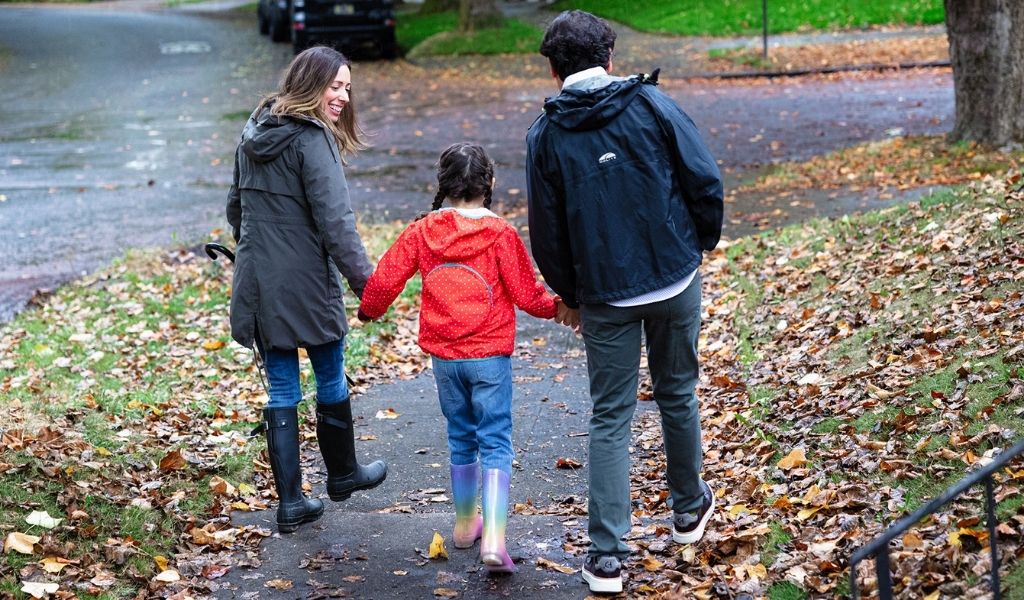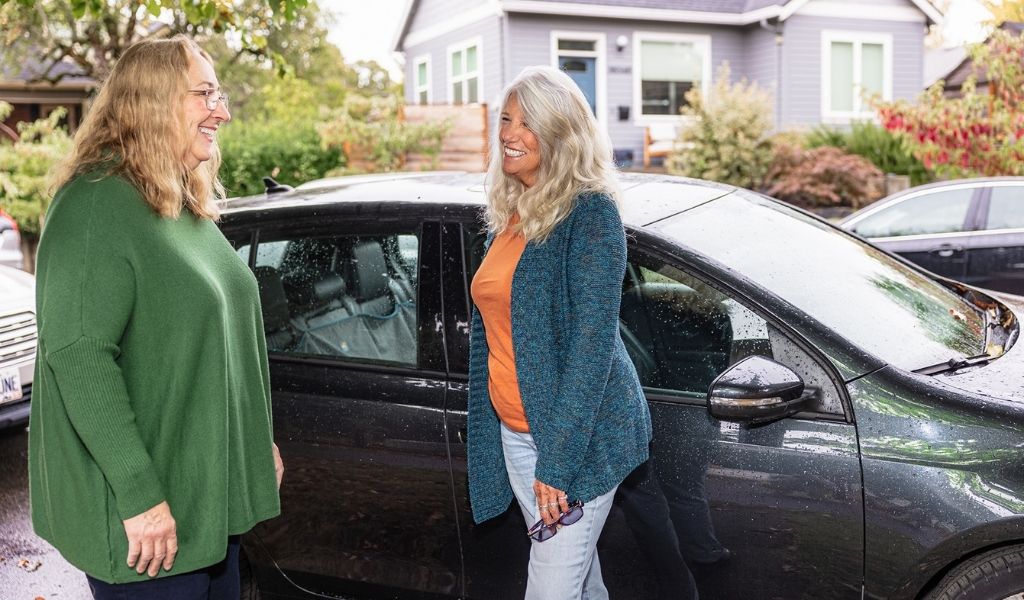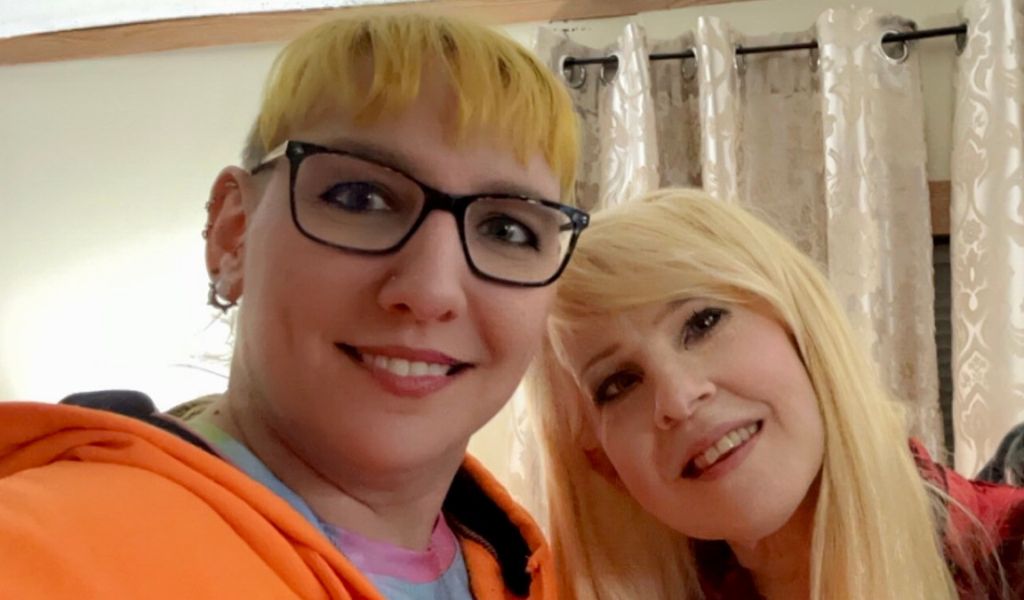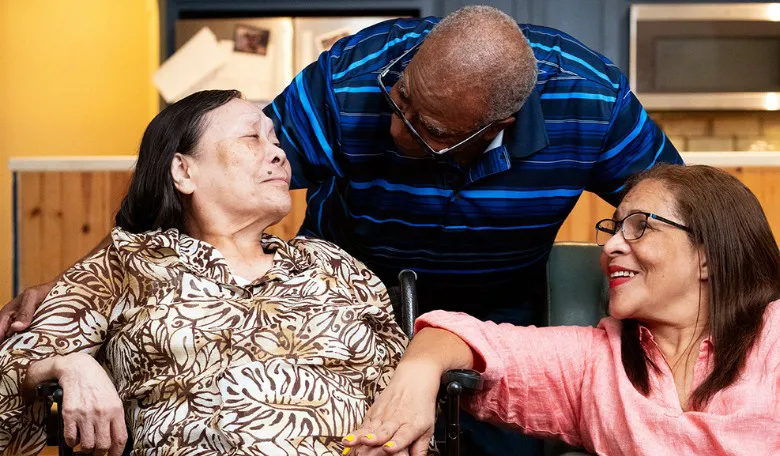
A message from Andrew Parker, Founder and CEO, Papa
2023 was a big year for shifting perspectives on loneliness as a public health issue. The U.S. Surgeon General, Dr. Vivek Murthy, released an advisory entitled, “Our Epidemic of Loneliness and Isolation.” U.S. Senator Chris Murphy introduced legislation to combat this epidemic and promote social connection. The World Health Organization launched a commission to address loneliness as a pressing health threat.
These milestone moments signal a growing recognition of human connection’s profound impact on our mental and physical well-being. And yet, this is something we’ve focused on at Papa since the very beginning.
Papa’s journey
When Papa was founded in 2017, we started out with a simple idea: human connection is the answer to improving our health. My family experienced this firsthand when we couldn’t always be there for my grandfather to provide the support and assistance he needed as he aged. His needs weren’t clinical, but we knew without social connection and support, he’d be at risk for a variety of health concerns. We found him a companion who would stop by to check in, stay for visits, and help around the house. His entire outlook—and ours—shifted.

Our founding team at Papa spent the next few years building a social care platform that paired a network of older adults, like my grandfather, with their own companions—Papa Pals—who provide company, in-home assistance with everyday tasks, and transportation for things like running errands and doctor’s appointments. We spent the time to really understand our members and what they needed the most, and by the end of 2019, we had facilitated close to 40,000 visits across the country.
Then the COVID-19 pandemic hit, exacerbating our country’s loneliness epidemic and heightening the need for social support from someone like a Papa Pal. We’ve seen it in our own data: In a 2023 epidemiological study of nearly 29,000 Medicare Advantage members, including people with disabilities and low-income older adults, we found that a vast majority—63%—reported feelings of loneliness, while nearly a quarter reported severe loneliness. And we found nearly 1 in 5 have no one to turn for support, should they need it.
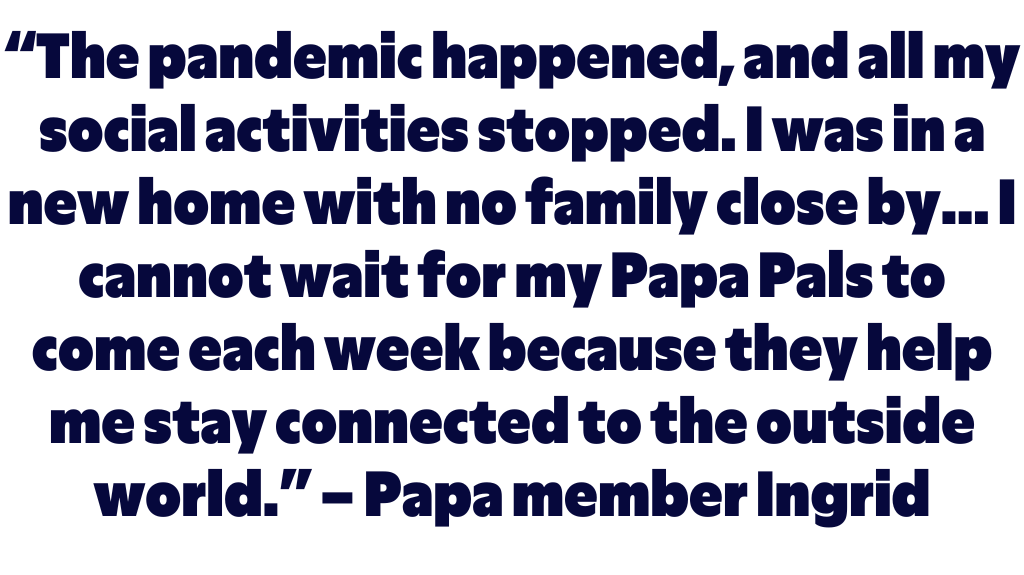
Papa grew rapidly post-pandemic, and we faced challenges. The need was larger than we could have ever anticipated. So we worked swiftly and diligently to make human help accessible to as many isolated older adults as possible. And in doing so, we became the nation’s first scalable, in-person connectivity platform that continues to improve and grow.
What 2023 has taught me
Not everything has been perfect on the road to getting here, and I’ll be the first to admit that important lessons from our experience building Papa still rise to the surface today. As the year comes to a close, I find myself reflecting on what 2023 has meant for us. I want to share what we’ve learned, and why we’re more prepared than ever for what this year in particular has shown us: we must prioritize human connection if we are to live healthier lives.
The problems we set out to solve are complex, and so is our model
In the startup world, there are countless companies that grew too fast and flew too close to the sun. While Papa certainly grew fast, and at times we had to soar beyond our own expectations, we are—and always will be—learning, reflecting, and evolving to best achieve our vision of a world where no one has to go it alone. We are working thoughtfully and tirelessly to deliver this new kind of care because America’s older adults deserve it. My family did and yours does too. If we don’t step in to fill this need, who will?
With a model rooted in the needs of our members, Papa’s work has redefined where and how we care for communities. We’ve come a long way from the early days, when our founding team members would regularly take member visits ourselves to keep up with demand. We’ve recognized the operational requirements needed to effectively address the unique needs of our members across the country, and where we need to invest in order to scale and meet the growing market demand.
Today, Papa operates nationwide. We’ve built a sophisticated model that has put Papa Pals in the homes of members in more than 7,300 cities—a geographical footprint that allows us to serve 80% of the U.S. population. As a point of reference, Lyft services around 650 cities in the U.S.
Despite the more than 600% increase in membership we experienced from 2021 to 2023, we have maintained very high member satisfaction (on average, members rate their Pals 4.8 out of 5 stars) and attracted enough mission-minded Papa Pals to support the growing needs for our services. We’ve conducted more than 2.1 million visits with members since we began, and we’re on track to complete 1 million visits this year alone, a 57% year-over-year increase.
Our team—myself included—still regularly volunteer as Pals. We benefit from the firsthand experience. It’s one of the many ways we inform change. In fact, “be a pal” is a core tenet of our culture as one of our company values. This work is not only important, but deeply personal to all of us.
Trust and Safety remains top of mind
Since 2017, we have continued to improve trust and safety measures for our members and Papa Pals. What we’ve learned is that this work is never complete. We took time this year to prioritize additional initiatives to further improve the security of members and Pals as we launched our Trust and Safety Roadmap containing 30+ initiatives we committed to achieving this year. Because even though 99.97% of visits go without a member-reported safety incident—even one is too many.
I’m proud and invigorated by the improvements we’ve made to Pal training and education, the dozens of product enhancements our team has rolled out, our industry-leading screening and background check processes, and more that all took place this year. Our progress ensures the highest-quality Pal and member experience, via the safest companion care platform on the market.
It’s always been about the people
And that brings me to my final lesson. Papa is made up of everyday people—our Papa Pals, our members, our team. People aren’t perfect, and the work isn’t easy. But at a time when much of our society is missing the social support they need, people can’t be replaced.
Papa is not a third-party marketplace or a chatbot. We strive to enable easier, more proactive care for our members, and we work hand-in-hand with their health plans to reduce gaps in care. At the same time, we provide empathetic individuals with an opportunity to make a difference in their communities, fulfill their sense of purpose, and grow their own connections on a flexible schedule they control.
As I look ahead to 2024, and as I reflect on these learnings, I realize the beauty of where I find myself today. Six years in, I have the gift of time and experience. We’re continuing to hone and improve Papa’s offering by continuing to listen to our members, Papa Pals, health plan partners, and other stakeholders. We cannot tackle the momentous social issues we face alone, but we can make meaningful progress if we work together. That’s exactly what our model is built on.
We know more about the effects of loneliness and social isolation than we used to, yet these feelings remain at an all-time high for people around the world. At Papa, our connection and commitment to our mission burns brighter than ever before. We know that our impact makes a difference: in one study, Papa’s support helped avoid 1 in 7 hospitalizations, and in another, Papa’s services reduced emergency department visits by 20% and the total cost of care by 6%.
My commitment to all of you—partners, Papa Pals, members, friends, supporters—is this: from the beginning, we built Papa to last, and we are doing everything we can to plan for the Papa of the future. There’s too much at stake to do anything otherwise.
